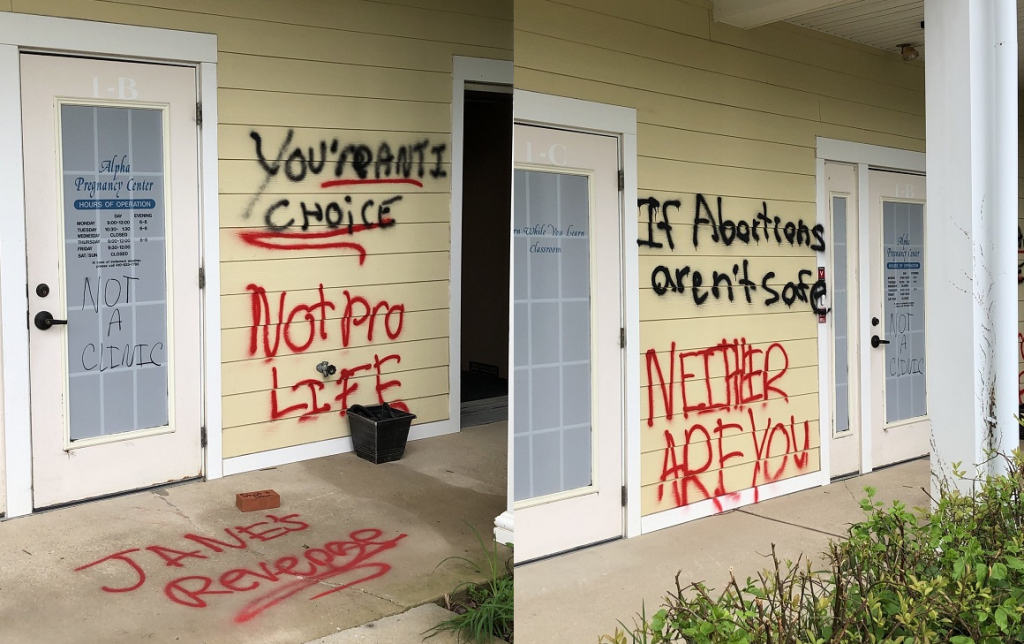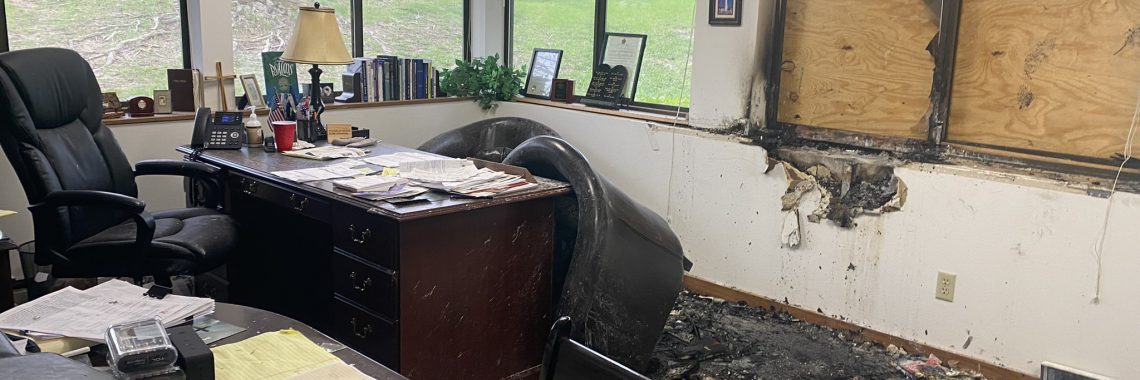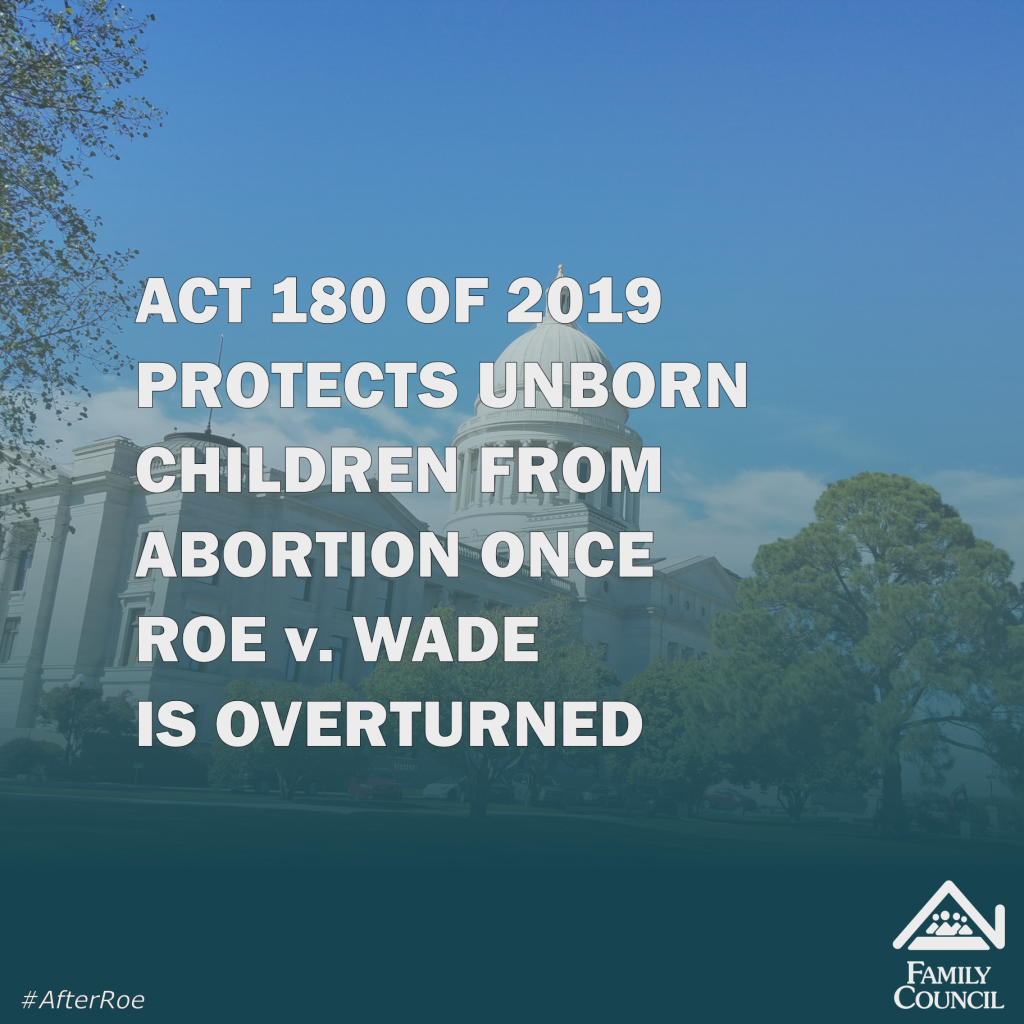U.S. Sen. Cotton Demands DOJ Investigate Jane’s Revenge As A Domestic Terror Organization

Last week a group of more than 100 congressmen — including all four congressmen from Arkansas — urged the U.S. Department of Justice to take action against the pro-abortion terror group Jane’s Revenge.
On Thursday, U.S. Sen. Tom Cotton (R – AR) wrote a letter to U.S. Attorney General Garland urging the DOJ to investigate Jane’s Revenge as a domestic terror group and prosecute those who have committed acts of violence against pro-life organizations.
Violence against pro-lifers has escalated since the leak of a draft opinion indicating that the U.S. Supreme Court plans to overturn Roe v. Wade.
In many cases, credit for the attacks has gone to the terror group Jane’s Revenge.
Sen. Cotton’s letter addressed to U.S. Attorney General Merrick Garland says,
Houses of worship and pro-life pregnancy centers are under attack. The Family Research Council has compiled a list of more than 50 attacks against churches, pro-life pregnancy centers, and other pro-life groups in the past few weeks.] A left-wing extremist group called “Jane’s Revenge” has taken credit for many of these attacks, including firebombings and grotesque acts of vandalism. The same group has now issued a letter declaring “open season” on all so-called “anti-choice” groups, and calls for terrorist attacks against these groups by anyone “with the urge to paint, to burn, to cut, [or] to jam.” I am appending a list of attacks this group has already claimed at the end of this letter.
What is the Department of Justice doing to protect Americans from these violent attacks? At a minimum, you should bring federal charges against the perpetrators, where appropriate, and investigate “Jane’s Revenge” as a domestic terrorist organization.
If you are unwilling to protect Americans from these attacks, you should resign — although, in
my opinion, you should resign in any case.

Sen. Cotton’s letter goes on to list attacks against churches and pro-life organizations claimed by Jane’s Revenge, including:
- May 7 – St. John XXIII Catholic Church in Ft. Collins, Colorado has its windows smashed and is vandalized with the message, “My Body My Choice,” plus an anarchist symbol
- May 8 – Wisconsin Family Action in Madison, Wisconsin is firebombed and vandalized with the threat, “if abortions aren’t safe, then you aren’t either.”
- May 8 – The Loreto House Pregnancy & Parenting Resource Center in Denton, Texas is vandalized with the messages “Forced birth is murder” and “Not a clinic.”
- May 13 – The Alpha Pregnancy Center in Reisterstown, Maryland is vandalized with the messages “Jane’s Revenge” and “If abortions aren’t safe neither are you.”
- May 14 – BirthRight pregnancy center in Frederick, Maryland is vandalized with the messages “Defend Roe” and “F-k Fake Clinic.”
- May 21 – Four churches in Olympia, Washington are vandalized with messages, including “If abortions aren’t safe then neither are you,” “Abort the church,” and “God loves abortion.”
- May 27 – Next Step Pregnancy Services has its windows smashed and is vandalized with the threat “If abortion isn’t safe, you aren’t either.”
- May 30 – The Respect Life Office in Hollywood, Florida is vandalized with the messages “Jane’s Revenge,” “If abortions aren’t safe then niether [sic] are you,” and anarchist symbols.”
- May 30 – The Dove Medical Pregnancy Center in Eugene, Oregon is vandalized with the messages “From Jane,” “Not a clinic,” “Abortion is healthcare,” and communist and anarchist symbols
- June 2 – Agape Pregnancy Center in Des Moines, Iowa has its windows smashed and is vandalized with the messages “God loves abortions” and “fake clinic.”
- June 3 – The Capitol Hill Pregnancy Center in Washington, D.C. is vandalized with eggs, red paint, and a message stating “Jane’s Revenge”
- June 7 – Mountain Area Pregnancy Services in Asheville, North Carolina has its windows smashed and is vandalized with the messages “No forced birth” and “If abortions aren’t safe, neither are you!”
- June 7 – CompassCare pregnancy center in Buffalo, New York is firebombed and vandalized with the message “Jane was here.”
- June 8 – Options360 pregnancy center in Vancouver, Washington is vandalized with red paint and the message “Jane’s Revenge.”
- June 11 – The Gresham Pregnancy Resource Center in Gresham, Oregon is firebombed.
You Can Read Sen. Cotton’s Entire Letter Here.

Articles appearing on this website are written with the aid of Family Council’s researchers and writers.





